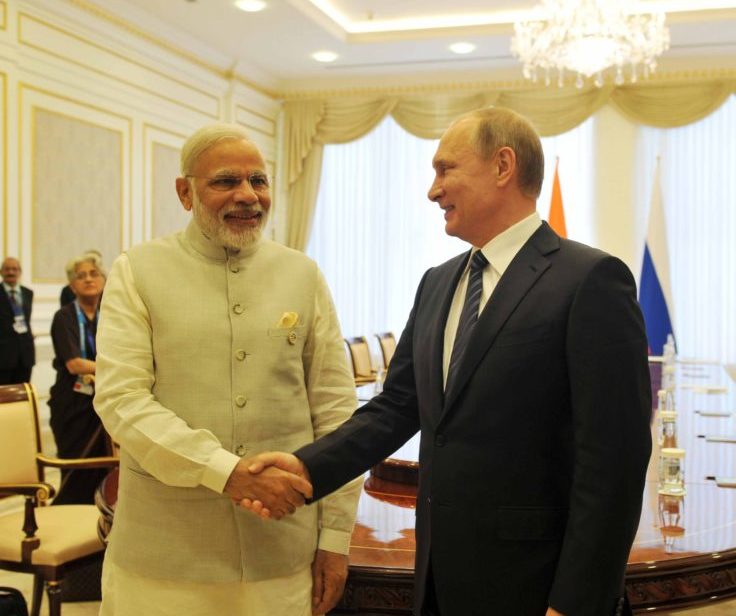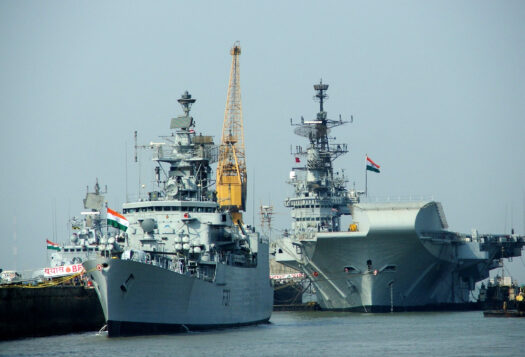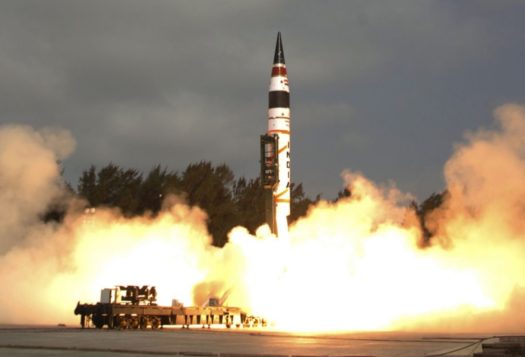
While the United States and Taliban have failed to negotiate a peace deal, Russia is rapidly gaining leverage in Afghanistan. Moscow, increasingly wary of U.S. military presence at its Central Asian doorstep, has established ties with the Taliban and supported the group’s role in Afghanistan’s political affairs. Moscow’s primary interests in the region, however, are motivated by concerns over the ensuing political instability leading to conditions ripe for expansion of the Islamic State-Khorasan Province (ISKP). By portraying itself as a as committed to pursuing peace in Afghanistan by hosting a Taliban delegation days after the U.S.-Taliban talks collapsed, Russia stands to assert its role in the country and expand its diplomatic influence in the region.
Amid these developments, India continues to remain on the periphery. New Delhi’s opposition to the Taliban is well known, however, there have also been indications that space may be opening within India’s strategic establishment to reconsider its stance. With Moscow gaining influence in shaping Afghanistan’s future, India could do well to leverage its ties with the former to reach out to the moderate factions of the Taliban and possibly find a seat at the high table during the Afghan peace negotiations.
Background: Russia-Taliban Connections
With Moscow gaining influence in shaping Afghanistan’s future, India could do well to leverage its ties with the former to reach out to the moderate factions of the Taliban and possibly find a seat at the high table during the Afghan peace negotiations.
Despite Kabul’s objections to Moscow’s open engagement with the Taliban, it is hard to underplay the Kremlin’s stakes in the outcome of the U.S.-Taliban talks. Russia, like other regional actors, recognizes the dangers of a political vacuum, which could pave the way for the Islamic State’s inroads as witnessed in Iraq and Syria in the recent past. Russia contends that the looming presence of IS in Afghanistan is reason enough to justify support for the Taliban. This stance is in stark contrast to Russia’s attitude towards the Taliban when the group captured power in 1996. At that time, Russia feared that instability in Afghanistan would spill over to Chechnya, and even supported the United States in the early years of the Afghan war. In today’s geopolitical calculus, however, Russia sees the Taliban as an enduring group in the region, and a potential ally against encroachments by the Islamic State and its affiliate groups into Central Asia.
India, however, has exhibited skepticism towards the Taliban and its deep links with Pakistan. India’s fears of crossborder terrorism are compounded whenever the United States announces disengagement from Afghanistan, as the last time a foreign power withdrew from Afghanistan at the end of the Soviet-Afghan war, there was an unprecedented inflow of foreign mujahideen into the Kashmir insurgency. Despite the unclear state of the peace-talks and delayed U.S. withdrawal, Pakistan’s ties with the Taliban have left it considerable leverage in Afghanistan. As India fears an imminent terrorist threat from its northwest, Russia’s influence over the Taliban could serve as a potential entry point for India to re-define its approach to Afghanistan.

India and Russia: Converging Interests in Afghanistan
India’s objections to the Taliban stem not only from the group’s role in the hijacking of Indian Airlines Flight 814, they are also rooted in the group’s mujahideen elements participating in the Kashmiri insurgency during the late 1980s and early 1990s, which was backed by Pakistan’s Inter-Services Intelligence. India has been sidelined as other global and regional actors accepted the Taliban’s role as a force to be reckoned with. Further, India has limited prospects for rapprochement with the Taliban given its unequivocal support for the Kabul government. Anticipating a renewed insurgency threat in the event of a U.S. withdrawal from the region likely contributed to India’s recent revocation of Article 370 from the state of Jammu and Kashmir and heightened troop presence along the Line of Control (LoC) with Pakistan.
However, despite concerns over Pakistani motivations to exploit the situation in Afghanistan, India might be overestimating the fears of a Taliban involvement in Kashmir. In addition, the Taliban may be desisting Pakistani efforts to hyphenate the two conflicts, with a Taliban spokesman stating that Afghanistan is “not related” to Kashmir, suggesting the Taliban may be adopting a more balanced approach in the region. Given that Moscow was able to host a Taliban delegation so soon after the peace deal with the United States fell through suggests that Russia could emerge as a key player in the evolving dynamic. In this context, geopolitical wisdom suggests that New Delhi would do well to use its ties with Moscow in the likely event of a Taliban-dominated political space in Afghanistan.
Geopolitical wisdom suggests that New Delhi would do well to use its ties with Moscow in the likely event of a Taliban-dominated political space in Afghanistan.
The convergence of Russian and Indian interests on the future stability of Afghanistan and counterterror measures was on full display during Indian Prime Minister Narendra Modi’s recent visit to Vladivostok for the Indo-Russian annual summit where both sides voiced their opposition to “outside influence” in any nation’s internal affairs. Although this sharply diverges from India’s fears of a hasty U.S. exit from Afghanistan, it is important to keep in mind that the status quo has not tangibly reduced crossborder violence for India even with United States calling for Pakistan to immediately end support and safe havens to all terrorist groups.
In Vladivostok, India and Russia also expressed keen desire to cooperate within the Shanghai Cooperation Organization(SCO)-Afghanistan Contact Group and support the intra-Afghan dialogue “launched in Moscow in February 2019.” Russia has also called for external help under the SCO-Afghanistan Contact Group to prevent the spread of IS-led groups in the north of Afghanistan. It is notable that the February 2019 dialogue had no representatives from the Kabul government, and was reproved by Afghan President Ashraf Ghani. While forums like the SCO offer only limited security guarantees, they present opportunities for India to work with other regional actors on Afghanistan. Potential Indo-Russian cooperation on trade connectivity via the International North-South Transport Corridor could also enhance Afghanistan’s relevance as a transit point.
While the Taliban’s prominent role in the Afghan peace negotiations seems detrimental to India’s interests in the region, New Delhi should strive to open negotiations with the less hostile elements within the group. India had squandered an earlier opportunity to build a constituency of support among the dominant Pashtun community after its acquiescence to the Soviet invasion of Afghanistan. India’s closer cooperation with Russia may cause complications in its relations with the United States. However, India’s stake in Afghanistan’s stability for its own northwestern security corridor could motivate alignment with Russia’s larger goal of maintaining a secure regional environment that would keep a check on ascendant terrorist groups, especially given the United States’ apparent hurry to get out of Afghanistan as soon as possible.
Conclusion
While U.S. reliance on Pakistan for its counterterror operations post 9/11 kept India from playing a significant role in Afghanistan, Russia’s emerging role in the region bodes well for India. First, India can hope to reach out to the moderate faction of the Taliban under Russia’s influence. Second, India could align with Russia’s policy of counterterror measures against the ISKP in Afghanistan to secure its own interests along the northwestern border with Pakistan. Thirdly, although premature, India and Russia may be able to play a larger role in striking a balance between the Afghan government and Taliban in a future setup given their respective influence over the said parties. Today as Moscow and New Delhi carefully make their moves in the Afghanistan quagmire, both sides can hope that stability in their bilateral relationship allows them to cooperate on managing the ongoing instability in Afghanistan.
***
Image 1: MEA India via Twitter


